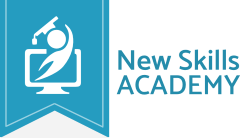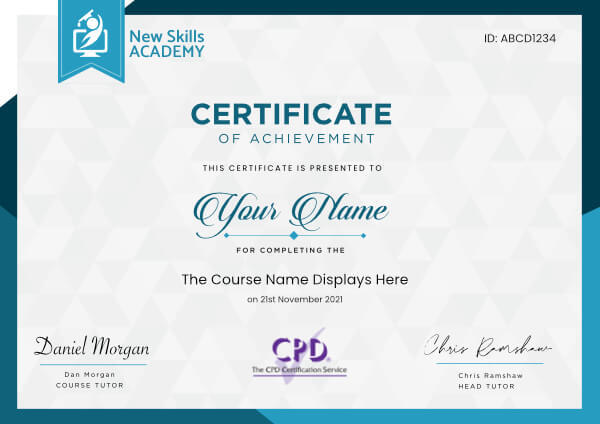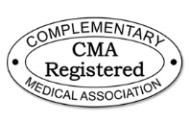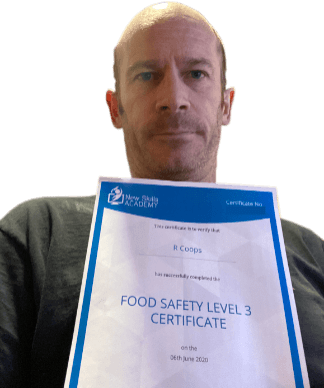Child Attachment Diploma
Child Attachment Diploma Course
The highly interesting psychological field of child attachment is explored in great detail in this course. Starting with a look at the main theories and theorists, the course explains the main concepts and principles clearly, covering all the fundamental points for you. Bowlby and Ainsworth have proven to be huge contributors to the field of child attachment and their work is carefully considered within the course’s 10 modules. This course will teach you how to think like a true expert in the field of child attachment theory. You will be taught the signs to look out for when there are any issues in this field and the tests that can be implemented along the way to better facilitate this. By the end of the course, you should be able to apply the guiding principles of child attachment theory with relative ease. From working as a social worker, to a child psychologist and even a classroom assistant, this course will prove to you that there is a huge variety of roles connected with the field of child attachment. Indeed, the final module is devoted entirely to this discussion and is conveniently split between roles that are more ‘hands-on’ in the field of child attachment, compared with those that may involve this psychological niche in a little more tentative manner.
What You Will Learn
- A detailed look at the history and evolution of child attachment theory
- A discussion of the internal working models that are used in this field
- We look at the main contributors to this field (e.g. Ainsworth and Bowlby)
- You will learn the important ‘Strange Situation Test’
- You will consider the main influences of child attachment
- A look at the ethical considerations that must be borne in mind, especially when working with children
- How attachment should stabilise in later childhood
- You will consider the hugely important concept of vulnerability in relation to child attachment
- Define ‘harm’ and look at ‘degrees of harm’ in good detail
- Some of the roles of employment that are connected with this interesting psychological niche.
Benefits of the Course
- The ability to recognise the signs of child attachment problems
- You will understand how to implement the ‘Strange Situation Test’
- You will gain the skills that will enable you to work in a huge variety of fields connected with child attachment
- Gain knowledge of a truly interesting psychological niche
- Learn how you can make a real difference in the field of child attachment
- The ability to study from any location with an Internet connection
- Learn the material at any time and at your own pace
- Lifetime access to the course – no deadlines
- Obtain a recognised certification when completing the course, which will improve your career prospects.
This course includes
24/7 Student Support
End of course certification
Lifetime access to your course
Compatible with modern devices
- Child attachment briefly explained and defined
- Key terminology necessary to understand child attachment
- Four major types of child attachment
- How to assess and measure attachment in both childhood and adolescence
- What is child attachment?
- Reactive attachment disorder
- Attachment theory
- The attachment stages
- What is meant by the evolutionary model of attachment theory;
- The biochemistry behind attachment;
- How to identify attachment behaviours;
- What is meant by internal working models;
- An understanding of internal working models
- Effects of attachment on early and later development
- Institutionalisation
- Secure and insecure attachment in institutionalisation
- How to identify the different types of sensitivity displayed by parents that are associated with the different types of attachment
- How the different frequency and variety of emotional displays of infants are related to the response received from their mothers
- What mind mindedness is and how it affects attachment
- The difference between attuned and non-attuned parents
- The links between psychotherapy and attachment theory;
- The effects of attachment on brain development;
- A range of interventions that can be implemented, if there are potential problems with the attachment between a mother and child;
- How internal working models can sculpt the child’s developing brain;
- An introductory overview of attachment theory
- How do we measure attachment?
- The Strange Situation Classification (SSC)
- Results of the Ainsworth study
- The three ways in which children are vulnerable during research projects
- How the development of children can be negatively impacted by research and how to avoid this
- The perils of the power imbalance that can be present during research and how to minimise the effects
- The barrier of comprehension for young children
- Know what the different degrees of harm are
- Be able to identify risk factors that may indicate an increased chance of harm occurring as a result of a research project
- Understand what an Ethical Framework is
- Identify how the key principals of the BPS apply to the study of child attachment
- Introduction - do people even work in this field?
- I want to hold a baby!
- I don’t want to hold a baby!
- Where you can source work
 ID: YDFT67YHJ
ID: YDFT67YHJ
of achievement
This certificate is presented to
Your Name

For completing the
Child Attachment Diploma
on 21st November 2024
Selena Hurford
Selena Hurford
Course Tutor

Daniel Morgan
Daniel Morgan
Head of Academy

Anyone who has an interest in learning more about this subject matter is encouraged to take the course. There are no entry requirements to take the course.
The course is broken down into 10 individual modules. Each module takes between 20 and 90 minutes on average to study. Although you are free to spend as much or as little time as you feel necessary on each module, simply log in and out of the course at your convenience.
You can study the course any time you like. Simply log in and out of the web based course as often as you require. The course is compatible with all computers, tablet devices and smart phones so you can even study while on the move!
Once you have completed all 10 modules there is a multiple choice test. The questions will be on a range of topics found within the 10 modules. The test, like the course, is online and can be taken a time and location of your choosing.
The pass mark for the test is 70%.
If you don’t pass the test first time you will get further opportunities to take the test again after extra study. There are no limits to the number of times you can take the test. All test retakes are included within the price of the course.
Once you have completed your test you can log in to your account and download/print your certificate any time you need it. If you would prefer us to post you a certificate to a UK address, there will be an admin charge of £10 (certificates sent internationally may cost more).
You can either use your Visa, MasterCard, American Express, Solo cards or PayPal account to pay for the online course. Our site uses the latest SSL encryption to ensure your safety. All payments are handled securely by PayPal.
You can begin the course immediately after your payment has been received. You will create your login details during the checkout process. We will also send you an email confirming your login details.
We estimate that the course will take about 15 hours to complete in total, plus an additional 30 minutes for the end of course test.
Once you have been awarded your certificate it is valid for life. The certificate does not expire or need renewing.
 I really enjoyed this course. It was really informative while also being interesting and enjoyable. I really like the little tests taken at the end of each module as they really helped to consolidate my understanding. Emily Paul
I really enjoyed this course. It was really informative while also being interesting and enjoyable. I really like the little tests taken at the end of each module as they really helped to consolidate my understanding. Emily Paul
Child Attachment Diploma Course
The highly interesting psychological field of child attachment is explored in great detail in this course. Starting with a look at the main theories and theorists, the course explains the main concepts and principles clearly, covering all the fundamental points for you. Bowlby and Ainsworth have proven to be huge contributors to the field of child attachment and their work is carefully considered within the course’s 10 modules. This course will teach you how to think like a true expert in the field of child attachment theory. You will be taught the signs to look out for when there are any issues in this field and the tests that can be implemented along the way to better facilitate this. By the end of the course, you should be able to apply the guiding principles of child attachment theory with relative ease. From working as a social worker, to a child psychologist and even a classroom assistant, this course will prove to you that there is a huge variety of roles connected with the field of child attachment. Indeed, the final module is devoted entirely to this discussion and is conveniently split between roles that are more ‘hands-on’ in the field of child attachment, compared with those that may involve this psychological niche in a little more tentative manner.
What You Will Learn
- A detailed look at the history and evolution of child attachment theory
- A discussion of the internal working models that are used in this field
- We look at the main contributors to this field (e.g. Ainsworth and Bowlby)
- You will learn the important ‘Strange Situation Test’
- You will consider the main influences of child attachment
- A look at the ethical considerations that must be borne in mind, especially when working with children
- How attachment should stabilise in later childhood
- You will consider the hugely important concept of vulnerability in relation to child attachment
- Define ‘harm’ and look at ‘degrees of harm’ in good detail
- Some of the roles of employment that are connected with this interesting psychological niche.
Benefits of the Course
- The ability to recognise the signs of child attachment problems
- You will understand how to implement the ‘Strange Situation Test’
- You will gain the skills that will enable you to work in a huge variety of fields connected with child attachment
- Gain knowledge of a truly interesting psychological niche
- Learn how you can make a real difference in the field of child attachment
- The ability to study from any location with an Internet connection
- Learn the material at any time and at your own pace
- Lifetime access to the course – no deadlines
- Obtain a recognised certification when completing the course, which will improve your career prospects.
This course includes
24/7 Student Support
End of course certification
Lifetime access to your course
Compatible with modern devices
- Child attachment briefly explained and defined
- Key terminology necessary to understand child attachment
- Four major types of child attachment
- How to assess and measure attachment in both childhood and adolescence
- What is child attachment?
- Reactive attachment disorder
- Attachment theory
- The attachment stages
- What is meant by the evolutionary model of attachment theory;
- The biochemistry behind attachment;
- How to identify attachment behaviours;
- What is meant by internal working models;
- An understanding of internal working models
- Effects of attachment on early and later development
- Institutionalisation
- Secure and insecure attachment in institutionalisation
- How to identify the different types of sensitivity displayed by parents that are associated with the different types of attachment
- How the different frequency and variety of emotional displays of infants are related to the response received from their mothers
- What mind mindedness is and how it affects attachment
- The difference between attuned and non-attuned parents
- The links between psychotherapy and attachment theory;
- The effects of attachment on brain development;
- A range of interventions that can be implemented, if there are potential problems with the attachment between a mother and child;
- How internal working models can sculpt the child’s developing brain;
- An introductory overview of attachment theory
- How do we measure attachment?
- The Strange Situation Classification (SSC)
- Results of the Ainsworth study
- The three ways in which children are vulnerable during research projects
- How the development of children can be negatively impacted by research and how to avoid this
- The perils of the power imbalance that can be present during research and how to minimise the effects
- The barrier of comprehension for young children
- Know what the different degrees of harm are
- Be able to identify risk factors that may indicate an increased chance of harm occurring as a result of a research project
- Understand what an Ethical Framework is
- Identify how the key principals of the BPS apply to the study of child attachment
- Introduction - do people even work in this field?
- I want to hold a baby!
- I don’t want to hold a baby!
- Where you can source work
 ID: YDFT67YHJ
ID: YDFT67YHJ
of achievement
This certificate is presented to
Your Name

For completing the
Child Attachment Diploma
on 21st November 2024
Selena Hurford
Selena Hurford
Course Tutor

Daniel Morgan
Daniel Morgan
Head of Academy

Anyone who has an interest in learning more about this subject matter is encouraged to take the course. There are no entry requirements to take the course.
The course is broken down into 10 individual modules. Each module takes between 20 and 90 minutes on average to study. Although you are free to spend as much or as little time as you feel necessary on each module, simply log in and out of the course at your convenience.
You can study the course any time you like. Simply log in and out of the web based course as often as you require. The course is compatible with all computers, tablet devices and smart phones so you can even study while on the move!
Once you have completed all 10 modules there is a multiple choice test. The questions will be on a range of topics found within the 10 modules. The test, like the course, is online and can be taken a time and location of your choosing.
The pass mark for the test is 70%.
If you don’t pass the test first time you will get further opportunities to take the test again after extra study. There are no limits to the number of times you can take the test. All test retakes are included within the price of the course.
Once you have completed your test you can log in to your account and download/print your certificate any time you need it. If you would prefer us to post you a certificate to a UK address, there will be an admin charge of £10 (certificates sent internationally may cost more).
You can either use your Visa, MasterCard, American Express, Solo cards or PayPal account to pay for the online course. Our site uses the latest SSL encryption to ensure your safety. All payments are handled securely by PayPal.
You can begin the course immediately after your payment has been received. You will create your login details during the checkout process. We will also send you an email confirming your login details.
We estimate that the course will take about 15 hours to complete in total, plus an additional 30 minutes for the end of course test.
Once you have been awarded your certificate it is valid for life. The certificate does not expire or need renewing.
 I really enjoyed this course. It was really informative while also being interesting and enjoyable. I really like the little tests taken at the end of each module as they really helped to consolidate my understanding. Emily Paul
I really enjoyed this course. It was really informative while also being interesting and enjoyable. I really like the little tests taken at the end of each module as they really helped to consolidate my understanding. Emily Paul
Why you should study with us
Learn with confidence...



 RRP
$100
RRP
$100
Get a FREE Course
Sign up to our newsletter and get access to the Interview Skills and CV Writing Certificate course for free!
Simply enter your details below and we will email you access to your free course!
What our students say about us...

The course was clearly set out with helpful end of week tests which built my knowledge. Being dyslexic I found the course was set out in an easy to understand way. I was able to pass the test on my first attempt. The downloaded pdf are a useful resource that you can keep forever. Looking forward to the next course
Ross Dunsten

Very interesting and helpful course. I ve learned a lot of interesting things about make up and the tutorials were very helpful and easy to understand. I really reccomend this course for everyone who is passionate about make up and wish to develop their skills and make a career from their hobby.
Nicoleta Lucaci

This course is a great way to brush up on my rusty excel skills, I recommend this course to anyone looking for something to do during lockdown, it's easy to use and talks you through each stage step by step. It has given me the confidence I need to further my career.
Georgia Darke

Yet another well laid out course. This is my 3rd course so far with New Skills Academy.
More than likely will be back for another one soon. This course was enjoyable to do, and I learnt a lot and passed first try. My certificate will be up on the wall soon.
Rob Coops

Lovely course for people who want to know the basics and of sign language. It's has helped me to get more of an understanding and will greatly benefit me in my workplace. So easy to pick up and the videos were easy to understand. Would definitely recommend to anyone.
Chloe Hambly

I found this course incredibly useful, as it provided me with practical knowledge which I can implement in my role as a Support Worker. The videos were clear and concise, and the downloadable worksheets reinforced what I had learned as I was able to put pen to paper. Overall, a fantastic course for a great price! I am looking forward to taking on my next one.
Teleisha Harley

Excellent course, well explained and easy to understand. The course can be done at my own pace and is available on various devices. The layout of the course was excellent and the notes options is very good. The content is perfect and well structured, making it easy to understand and follow. I will definitely be taking more courses in the future.
Luis Costa

Wow what an incredible insight for the start of anyone's journey in property. This course gives you so much information and there are tests and questions on each of the modules. The course is very easy to follow and well laid out. You can actually make notes on the pages of each module using the notes tab! I am very excited to say that I passed and I only spent one week on this course. I will print all the PDF information and keep it in a file with my certificate. I feel very confident for my future plans now I have completed this course.
Nichola Anderson






